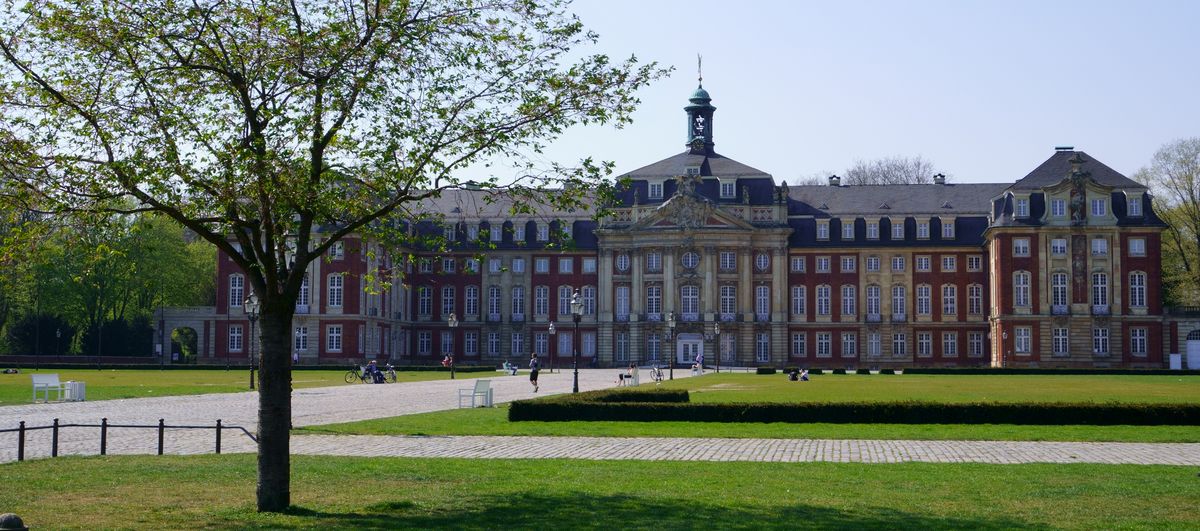

MSc students biomedicine, biosciences and biotechnology
Advanced Module
Biology of Reproduction
Responsible Instructors: Prof. Dr. Gromoll, PD Dr. Ehmcke, Dr. Götte, Dr. Laurentino, Prof. Dr. Neuhaus, Dr. Nordhoff, Prof. Dr. Schlatt, Prof. Dr. Strünker, Dr. Wistuba
Animal models, reproductive endocrinology, molecular genetics of fertility, biology of testicular stem cells
Novel Methods in Reproductive and Regenerative Biology and Medicine
Responsible Instructors: Prof. Dr. Schlatt, Dr. Brenker, Prof. Dr. Gromoll, Dr. Laurentino, Prof. Dr. Neuhaus, PD Dr. Nordhoff, Prof. Dr. Strünker, Dr. Wistuba
Flowcytometry, IVF/ICSI, RAMAN-Microspectroskopy, DNA-Itegrity, Immunohistochemistry, epigenetics
The use of fluorescent indicators to study cellular signal transduction
Responsible Instructors: Prof. Dr. Strünker, Dr. Brenker
The students should learn the use of fluorescent indicators in biomedical research. This includes the characterization of the physicochemical and spectral properties. The students get used with the function of fluorescent indicators for calcium, pH and membrane potential. They learn how to use these dyes in living cells.
Research Module
Germ line stem cells and testis physiology
Responsible instructors: Prof. Dr. Schlatt, PD Dr. Ehmke, Prof. Dr. Neuhaus, Dr. Wistuba
Gonadal stem cells
Responsible Instructors: Prof. Dr. Schlatt, Prof. Dr. Gromoll, Prof. Dr. Strünker, Dr. Wistuba
Epigenetics of germ cells
Responsible Instructors: Prof. Dr. Gromoll, Dr. Laurentino, Prof. Dr. Schlatt, Dr. Wistuba
Germ cells undergo massive waves of DNA de-methylation and re-methylation. This reprogramming of the germline results in a germ-cell expression pattern during spermatogenesis and a DNA methylation pattern that is essential for fertilisation and offspring development. This process might be disrupted for instance in male infertility and during ageing, which are associated with alterations in sperm DNA methylation patterns. Within this module, new epigenetic techniques such as pyro-sequencing, whole-genome methylation sequencing, and bioinformatics are applied. Underlying each research module is the aim to conduct translational research and develop projects covering aspects such as the compiling a project proposal, handling samples, learning new techniques, and providing a lecture at the end of the module.
Chemosensory signal transduction
Responsible Instructions: Dr. Brenker, Prof. Dr. Strünker
The students learn the usage of fluorescent indicators for calcium, pH and membrane potential. Then they learn how to use optochemical tools (caged compounds) and kinetic ionsensitive fluorometry. Using these methods the students should work on their own small projects. Previous participation in the advanced module "The use of fluorescent indicators to study cellular signal transduction" desirable.Master thesis
We constantly offer projects linked to our current research for your master thesis. Since we are doing research at the interface between biology and medicine, projects can, depending on your interests, focus on both basic and translational research.
You are interested? Contact our group leaders or young scientists!
Medical Students
Doctoral dissertations
We constantly offer doctoral dissertations in both experimental and clinical medicine on the basis of our current research.
You are interested? For clinical dissertations please contact Prof. Dr. Kliesch (contact). If you are interested in experimental medicine, don't hesitate to contact our group leaders in the Institute for Reproductive and Regenerative Biology!
Teaching
Courses for advanced graduate students, Master of Molecular Biomedicine/ Master of Biological Science
- Novel Methods in Reproductive and Regenerative Biology and Medicine (Prof. Dr. Schlatt/Dr. Wistuba)
- Biology of Reproduction (Prof. Dr. Gromoll/Dr. Wistuba)
- The use of fluorescent indicators to study cellular signal transduction (Prof. Dr. Strünker)
Research courses, Master of Molecular Biomedicine/ Master of Biological Sciences
- Epigenetics of germ cells (Prof. Dr. Gromoll)
- Gonadal Stem Cells (Prof. Dr. Schlatt/Dr. Wistuba)
- Chemosensory signal transduction (Prof. Dr. Strünker)

